Alan Holmes speaks to Laetitia Sadier about her second solo album.
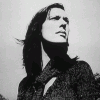 One of the most played records at our house so far this year has been Silencio, the second solo release by former Stereolab front woman [post=laetitia-sadier-silencio text=”Laetitia Sadier”]. It’s a record that releases its charms slowly, each listening revealing new and wondrous depths. This subtlety is counterbalanced by the direct political nature of the lyrics, harking back to the approach she took in Stereolab’s early days. After repeated plays of the record and a [post=laetitia-sadier-silencio text=”review”] for Freq, I asked Laetitia about Silencio:
One of the most played records at our house so far this year has been Silencio, the second solo release by former Stereolab front woman [post=laetitia-sadier-silencio text=”Laetitia Sadier”]. It’s a record that releases its charms slowly, each listening revealing new and wondrous depths. This subtlety is counterbalanced by the direct political nature of the lyrics, harking back to the approach she took in Stereolab’s early days. After repeated plays of the record and a [post=laetitia-sadier-silencio text=”review”] for Freq, I asked Laetitia about Silencio:
LS: I see each album as a new adventure, a new journey. The past is there of course but works more as a foundation than something to avoid in terms of repetition. And what if I repeat myself! Life can be repetitive at times and then it is never quite the same either… And yes each album will have a general idea, that will differentiate it from the last.
Freq: “The Rule of the Game” holds up La Règle du Jeu as a mirror to today’s society and class system, showing how little has changed since 1939. While the film is played as dark comedy, you seem to be treating the subject in a bleaker way. Do you feel satire has lost its potency in recent years and that it’s become necessary to spell out the message in a more explicit way?
LS: La Règle du Jeu the movie held a mirror to my own bourgeois life and my lack of response to the problems that are facing us human beings. I feel that we live in a grinding system that seeks to lower our consciousness and are led by an irresponsible elite that does the contrary to what it’s supposed to do to correct, for instance, the financial crisis we are going through. So the picture is dark indeed. The film is deceptively light. It contains the worst darkness I’ve ever seen in cinema. It magnifies the insensitive arrogant human monster that we have become, as we are all bourgeois now!
Freq: The up-tempo instrumental coda of the song suggests action in response to the earlier despair…
LS: Of course I know that there is a brighter side and that the insensitive arrogant monster can be turned around, hence the end of the song. I don’t think we are going to sink into the universe and die for ever. I believe that we can find solutions to whatever problems we are facing, and I do believe in people taking their destiny into their own hands.Freq: Given the current social crises, do you find it surprising how little political commentary and protest there is in today’s music? People in general and young people in particular seemed to have become depoliticised over the past couple of decades and although there are some signs of that changing now with the Occupy movement and student marches, it doesn’t seem to have manifested itself very widely in music in the way it did in the post-punk era for example…
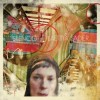 LS: The point of Silencio is exactly to fill the lack of political voice in pop music, and even to inspire people to open their mouths and shout! Given the social crisis I would like to hear that voice of dissent more clearly. Even the Occupy voice had some kind of clarity to begin with and lost it with time… Maybe precisely because politics have been demonised to death. The very idea of politics in terms of having conflicting ideas and being able to defend your ideals through a political discourse has totally gone out the window. Now you have to NOT have a clear idea and discourse to go with it. Every idea has to blend in with the next and be consensual… And that kind of dissent doesn’t seem to work in the face of capitalism and its beneficiaries, because it doesn’t have a backbone.
LS: The point of Silencio is exactly to fill the lack of political voice in pop music, and even to inspire people to open their mouths and shout! Given the social crisis I would like to hear that voice of dissent more clearly. Even the Occupy voice had some kind of clarity to begin with and lost it with time… Maybe precisely because politics have been demonised to death. The very idea of politics in terms of having conflicting ideas and being able to defend your ideals through a political discourse has totally gone out the window. Now you have to NOT have a clear idea and discourse to go with it. Every idea has to blend in with the next and be consensual… And that kind of dissent doesn’t seem to work in the face of capitalism and its beneficiaries, because it doesn’t have a backbone.
Freq: Your records, from Stereolab, through Monade to the two solo albums seem instrumentally very meticulously arranged, with great attention to detail and colour. In contrast, you have been performing live recently on your own, with just an electric guitar – something that I think surprised a lot of people. Was this something you really wanted to do, or was it more down to financial and logistical considerations? Either way, I think those concerts cast a whole new light on your songs, presenting them boldly and unadorned.
LS: When Tim [Gane]called the hiatus for Stereolab, I didn’t think I would carry on making music particularly. However, through Facebook I got invited to play many exotic places, like Greece, Brazil, Chile, Belgium, Portugal amongst others… I had to make a quick decision to go out on my own. Which was very exciting because I couldn’t quite play the guitar and had to learn en route! I think that deeply I wanted to find myself and find my voice, it was time. So the timing worked out fine for me in that respect. Finding oneself implies stripping and getting naked, which is basically what I did and now have gotten to a place where I have no shame! And I am now ready to go out on the road with a trio, which is an ideal set-up for me, which I’ve been wanting to try out for years.
Freq: Might you ever consider recording a record in such a stripped down way… if only as a ‘bonus disc’ maybe?LS: Of course I would like to be as naked as can be on record too, but that is such a difficult thing to do I’ve realised. Each time I set out to be as stripped down as can be and still have come with rather intricate parts and layers… Perhaps the next album will bring out more depth, reveal deeper truths…?
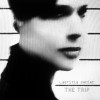 Freq: The Trip seemed a fairly subdued debut, from the austere black and white cover to a relatively brief playing time that included three cover versions. Silencio seems more expansive, from the more ornate cover artwork to the more generous length, varied moods and broad subject matter. Did you feel greater confidence this time around, having already proved you could come up with the goods on your own?
Freq: The Trip seemed a fairly subdued debut, from the austere black and white cover to a relatively brief playing time that included three cover versions. Silencio seems more expansive, from the more ornate cover artwork to the more generous length, varied moods and broad subject matter. Did you feel greater confidence this time around, having already proved you could come up with the goods on your own?
LS: As I said, making these albums marks life’s passages, they are representations of my journey, one leads to the other, which leads to the next, and one could hope that confidence and experience build along on the journey.
Freq: As with The Trip, Silencio is recorded with two completely different line-ups, with only Julien Gasc returning from the previous record. Is working with different collaborators all the time a crucial key to keeping things fresh?
LS: Yes indeed Julien is back – and has been since Monstre Cosmic – but also Emma Mario as he couldn’t attend the recording session in Toulouse but did mix that very session.I am intuitively led most of the time and my intuition tells me to try working with new people to make the experience a richer and different one. This time I had an opportunity to record with James Elkington, which worked out in very good artistic entente and lots of laughter! What more could I desire from a collaboration?
I am very keen to work with Richard Swift again as I always felt like we speak a similar musical language and would really like to further our conversations…
Freq: How did the two James Elkington songs come about? – he’s credited with sole authorship of “Fragment Pour Le Future de L’Homme” and yet the lyrics seem to sit very comfortably alongside your own… did he present you with the finished song, lyrics and all?
LS: A couple of years ago, I suggested to James that perhaps he should consider being a songwriter for interpreters. A little later, it dawned on me that I should put my advice to good use and asked him if he had any songs to propose me, which he did. I wanted some variety on the album, and I knew that his writing would marry my own well on a record, so off we went with the idea and indeed he had quite a list of songs I got to choose from…
Freq: And was “Next Time You See Me” written specially for the album or was it an older ‘leftover’? Tim (Gane) isn’t credited with actually playing on the record and yet the press announcements seem to suggest that he does…
LS: I asked Tim to write a song also, which he did specifically I believe, to that effect. He just proposed a demo, which sounded very different to what ended up on the record. He said that he was surprised at how it sounded and he liked the final version.
Freq: The album as a whole has remarkable cohesion given the varied recording situations and personnel – do you go in with very specific ideas of what you want the musicians to do or is there a degree of openness there?
LS: There is of course a big degree of openness and allowing what ever is there to play its part on the day. I did for the Toulouse session have in mind to sing together as a choir with the Aquaserge crew. I love the sound of amalgamated vocals and think that the result is one of the nicest features on the record. As to the rest, inspiration comes on the day, or it doesn’t…
Freq: According to the credits, “Merci De M’Avoir Donné La Vie” was recorded on your own at home and on the road but there are no instrument credits. Am I right in thinking iPad apps are used a lot here? Moog apps are credited elsewhere on the record, which might horrify some of your old analogue fetishist fans! Has this new portability of technical resources had a big effect on your working processes?
LS: The Moog app wasn’t used at all on “Merci De M’Avoir Donné La Vie”. I used the Nord Lead, which I have at home. We used the app, which Jim has. I love it! It doesn’t sound like a traditional Moog but more like what it is: A Moog app, and that is what is of interest here, that things have their own sound. And it sounds new. I am not so concerned about the purists or fetishists, but just finding new sounds, so any technology that can provide that is fine by me!Freq: In “Invitation au Silence”, you talk of experiencing ‘absolute silence’ in a church and it connecting you to your deeper self. You invite us to share it, but of course the silence is far from ‘absolute’ and we can very clearly hear the sound of the church itself on the recording. In one way, you could argue that it is possibly the least silent track on the album, the carefully soundproofed environment of a recording studio, filtering out all traces of the outside world could be said to be more silent, to say nothing of directly input digital sounds which never even existed as sound waves until the listener plays back the record. Is this also an idea you were working with (or am I just extrapolating a bit too far)? There was also a slightly related track at the end of Monstre Cosmic – is environmental sound something that particularly interests you and might you explore it further in the future?
LS: Yes, what I found in fact is that there is always life and surrounding sound and I like how rich that is, there are always overlapping sounds that go on and we are not consciously aware of it. So the last track on the record is a true invitation to be more mindful of the complexity and depth already existing in our surroundings. To pay attention to that. The emphasis wasn’t on finding absolute silence, which doesn’t exist anyway…
Freq: One ‘silence’ on the album is that of loss – of course your sister is still very much present on “Silent Spot” as on The Trip, but both “Find Me the Pulse of the Universe” and “Moi sans Zach” also seem to address personal loss of some kind. Further back, Margerine Eclipse was dedicated to Mary. Without wishing to be intrusive, are writing songs an important part of the process of coming to terms with loss?LS: Yes very much so. Grieving is a process and formulating the process, making it apparent, giving it an artistic form really helps getting it out there, rather than boxing the emotions in. When I got the record The Trip in my hand, when it had been manufactured, I became very aware of the process, that all my sadness had been poured into the work, which was incarnated in a way into the record. So I burst into tears! Because there it all was.
Freq: One old song you still sing live is “International Colouring Contest”. What makes this song still resonate in particular? Do you identify with Lucia Pamela as a woman staying true to her own personal vision, however different it might be to the ‘norm’ of the time?
LS: Yes indeed, I never realised how much I identify with this woman, thank you for making this clear. I like the cosmic aspect of her work, how connected she was to the Universe and how she integrated her self and her life as part of a bigger thing. To me it is a sign of evolution! And of course her proposition to do an international colouring contest is very poetic, in the true sense of humans doing something together, and always up for a bit of a contest! So instead of war, or petty fights we can channel our energies into being creative, imaginative and having fun with it.Freq: And finally, what contemporary music inspires you now, and is there anyone you feel is working in a similar field to you that you feel kinship with?
LS: Yes there are many people who are working the same creative field as I do. There is a whole family out there. People like Holden, or Aquaserge, Eastern Committee, in France. There is the German family with Mouse on Mars, Molly Nillson. There are many more but I can’t think of them right now.

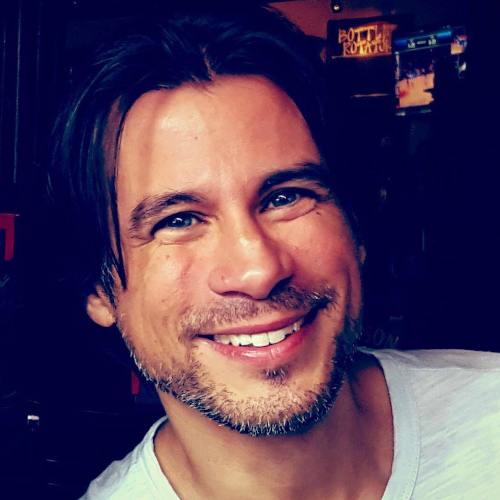
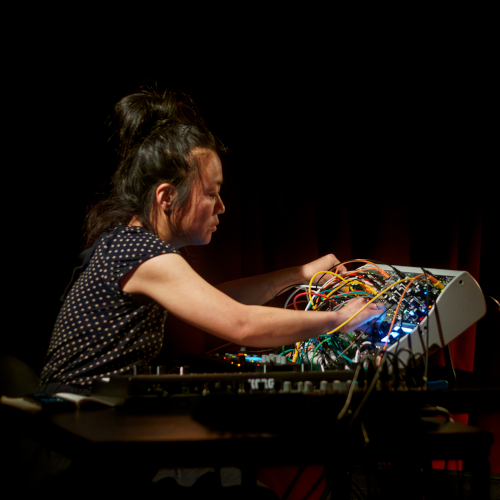

3 thoughts on “An interview with Laetitia Sadier”
Interview with Laetitia Sadier on music and politics: http://t.co/qaw9svKf
Read an interview with Laetitia Sadier over on @freqzine http://t.co/opkUJ9kh
Music Buddha Alan Holmes @TheGroceries
interviewed Laetitia Sadier recently – http://t.co/MvjpEqix